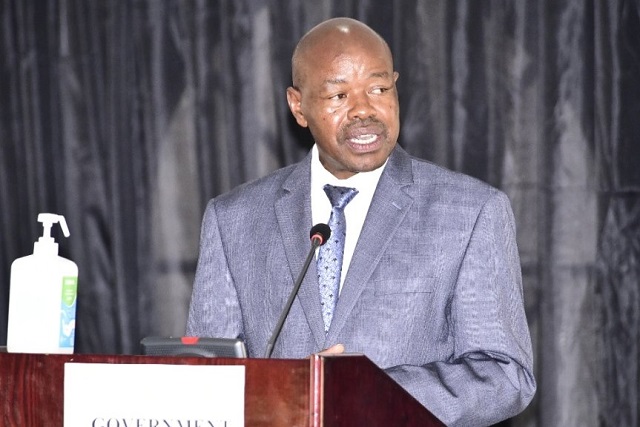
Kampala, Uganda | THE INDEPENDENT | Parliament’s Budget Committee has faulted officials from the Ministry of Finance for undermining the Public Finance Management Act provisions while presenting an additional budget of 3.4 trillion Shillings for the financial year 2021/2022.
The additional budget presented to the Committee on Monday has increased the proposed budget from 41.29 trillion to 44.77 trillion Shillings.
Led by the Minister of Finance Matia Kasaija, the Ministry officials on Tuesday returned to the committee with more queries about the additional budget which surpasses the 3.5 percent provision of the total budget to cater for fiscal deficit.
“We note the increase in the budget by 3.4 trillion Shillings, and we wonder if this is compliant with the Public Finance Management Act- PFMA regulation, particularly relating to fiscal deficit,” said Budget Committee Chairperson Amos Lugoloobi.
Muwanga Kivumbi, the Butambala County MP referred the officials to section 7 of the PFMA regarding deviation from the Charter of Fiscal Responsibility.
The section provides that the Minister may with the approval of Parliament deviate from the objectives of the Charter where Uganda experiences a natural disaster, unanticipated severe economic shock or any other significant unseen debt that cannot be funded from the Contingency Fund.
The law also directs the Finance Minister to within 30 days after deviation, publish a report in the gazette and the website of the Ministry.
Kivumbi emphasized that the Ministry is not expected to exceed 3 percent, but the proposed additional budget is approaching 7 percent which is a gross failure.
Patrick Ocailap the Acting Secretary to Treasury agreed with Kivumbi’s explanation. He said that the current Charter of Fiscal Responsibility that is expiring on May 12 when the new Presidential term begins sets the fiscal deficit of 3 percent.
“Did we deviate from that fiscal deficit and did the Minister come to parliament to explain why we are deviating from that? Yes, in the budget for this financial year 2020/2021, the Minister did come to parliament and explained several macro-economic assumptions,” Ocailap said.
Ocailap cited external and internal shock to the economy arising from the Covid-19 pandemic that had not been anticipated as one of the deviations from the fiscal deficit of 3 percent in the current financial year. He said that the Covid-19 pandemic led to several requests for adjustments to the budget as well as requests to borrow more money to cover the fiscal deficit arising from the shock to the economy.
Kenneth Mugambe, the Director Budget in the Ministry of Finance, said that within three months from the new government, the Minister will be laying the Charter of Fiscal Responsibility and this will provide an opportunity to review the various fiscal and macro-economic targets.
But Lugoloobi disagreed with a move by the Ministry of Finance to present an additional budget basing on a charter that has not yet come into effect saying that parliament does not approve funds or any law in speculation.
The MPs also wondered why the Ministry does not provide money under the Contingency Fund so that it caters for unexpected financial pressures.
The fund is a government account where a certain portion of the national budget is allocated to spend it on emergencies. In the current financial year 2020/2021, an allocation of 60 billion under the Contingency Fund was made but Minister Kasaija says that this was spent on the relief response to the people affected by floods.
Lugoloobi also questioned the inconsistencies in the budget compared to allocations in the National Development Plan. He said that the Ministry of Finance is financing some sectors more like Security at the expense of the productive sectors like tourism.
He said that tourism, manufacturing and other sectors are key in creating employment but they have not received attention from the Ministry considering the meagre budgetary allocations.
*******
URN
 The Independent Uganda: You get the Truth we Pay the Price
The Independent Uganda: You get the Truth we Pay the Price


